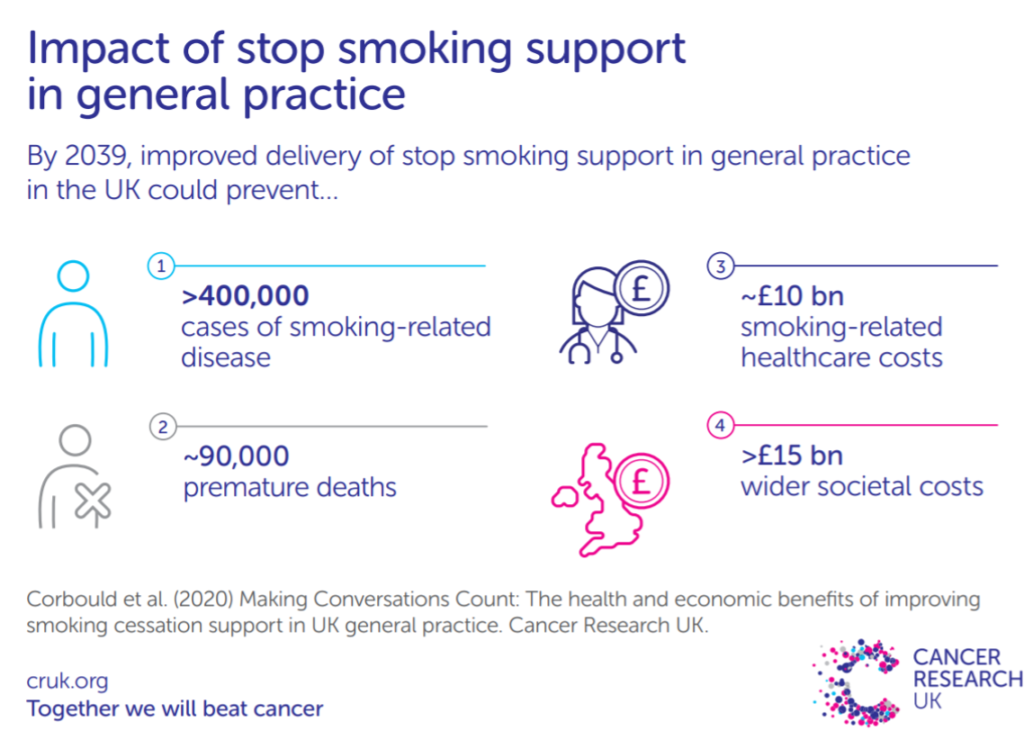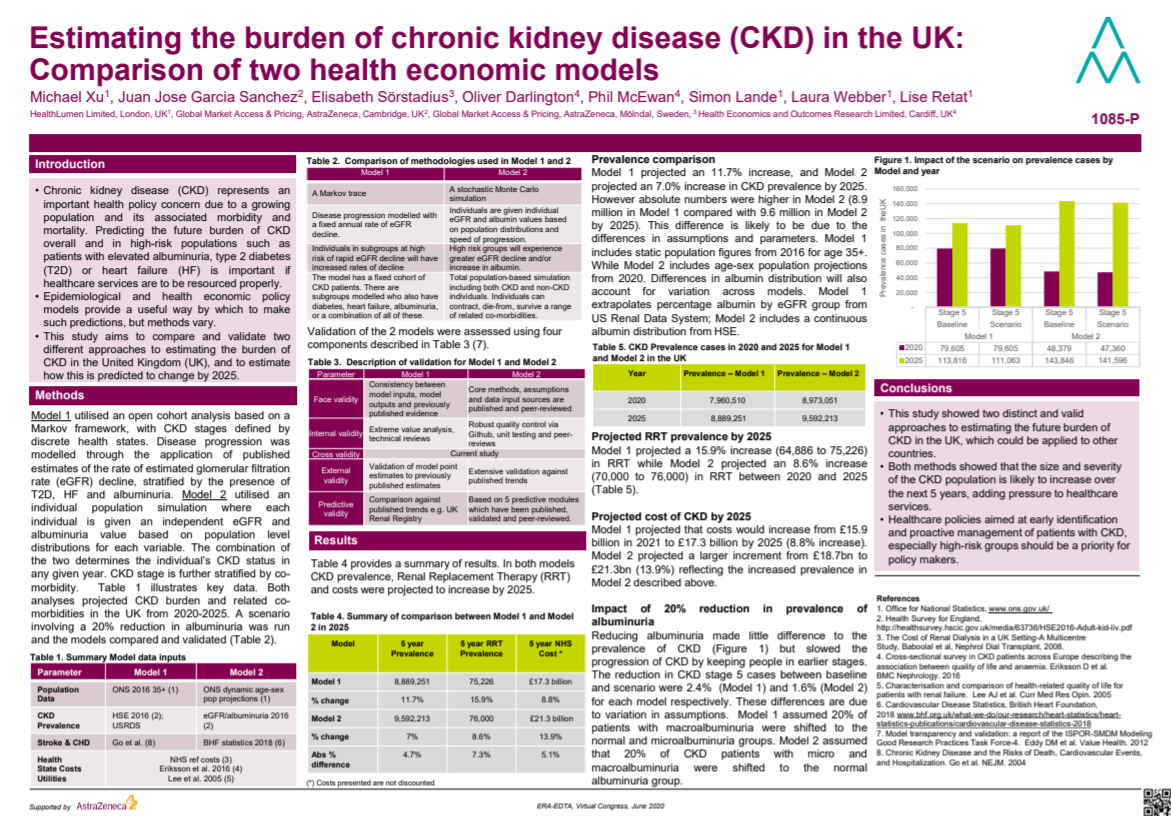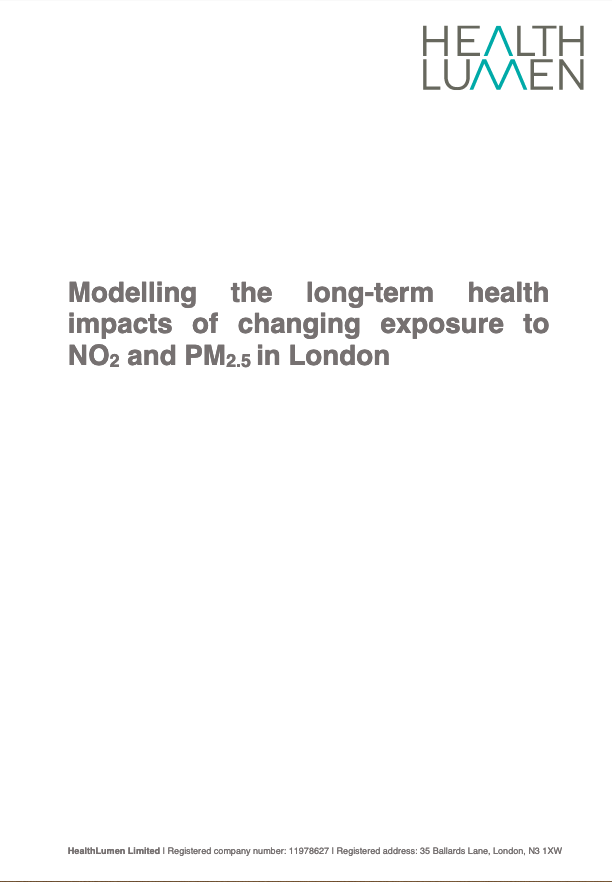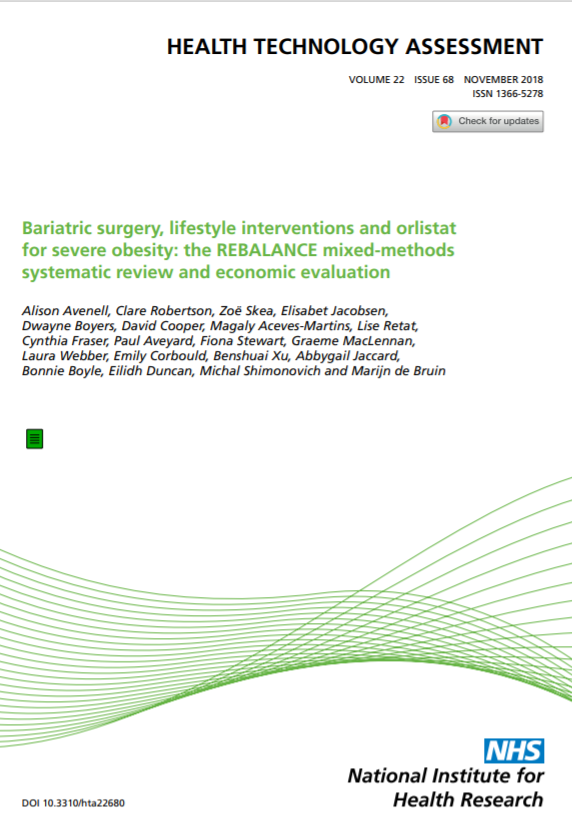We’ve answered many different kinds of questions for many different organisations in over 70 countries. They include:

This study conducted with Cancer Research UK aimed to quantify the health and economic benefits of GPs routinely delivering stop smoking support to patients during consultations in the UK. Using a microsimulation model over the period 2019 to 2039, a current practice 'baseline' scenario was compared to three opt-out smoking cessation intervention scenarios.

Chronic kidney disease (CKD) represents an important health policy concern due to a growing population and its associated morbidity and mortality. Predicting the future burden of CKD overall and in high-risk populations such as patients with elevated albuminuria, type 2 diabetes (T2D) or heart failure is important if healthcare services are to be resourced properly. Epidemiological and health economic policy models provide a useful way by which to make such predictions, but methods vary. This study aims to compare and validate two different approaches to estimating the burden of CKD in the United Kingdom (UK), and to estimate how this is predicted to change by 2025. Undertaken in partnership with AstraZeneca, this study is now being rolled out to over 20 countries.

The COVID-19 Pandemic is projected to cause an economic shock larger than the Global Financial Crisis of 2007/2008 and a recession as great as anything seen since the Great Depression in 1930s. The social and economic consequences of lockdowns and social distancing measures, such as unemployment, broken relationships and homelessness create potential for inter-generational trauma extending decades into the future. In the absence of a vaccine, governments need to introduce Universal Basic Income (UBI) as a means of mitigating this trauma.

In 2019, we reviewed Universal Basic Income (UBI) trial design and findings in comparison with the social gradient in health literature and biopsychosocial theory to identify knowledge gaps. The findings highlight a need to refocus UBI trials on improved health, including via reduced stress, to provide policy makers the means of producing accurate cost-benefit analysis. Previous trials have either not reflected likely UBI policy or failed to measure impacts that enable accurate analysis.

Transport for London (TfL) and the Greater London Authority (GLA) commissioned HealthLumen to quantify the health impacts of policies designed to reduce levels of air pollution and improve long-term health. This 2020 study estimates the number of new cases of disease and the resulting costs to the NHS and social care system under three scenarios from 2016 to 2050. The results from this study show that the ULEZ policies and broader, more all-encompassing LES policies have important impacts on the health of Londoners.

A study to systematically review bariatric surgery, weight-management programmes (WMPs) and orlistat pharmacotherapy for adults with severe obesity, and evaluate the feasibility, acceptability, clinical effectiveness and cost-effectiveness of treatment.
We have an experienced and multi-disciplinary team of software engineers, population health and policy research experts, and mathematicians.
Team